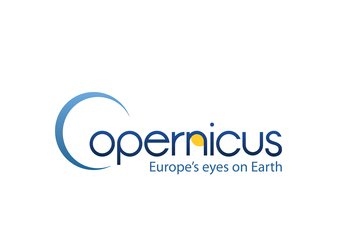Smallsats win big prize at Copernicus Masters
A constellation of small satellites that provide data on Earth’s ice and soil moisture content to complement the Sentinel fleet took the top prize at this year’s Copernicus Masters Competition.
In its seventh year, the competition seeks new ideas for services, business concepts and applications based on Earth observation satellite data.
The vast amounts of data produced by Europe’s Copernicus programme and its Sentinel satellites open the door to countless products and applications in a wide array of business sectors.
The awards ceremony took place yesterday in Tallinn, Estonia, in front of an international audience during European Space Week as part of the Satellite Masters Conference & Horizon 2020 Space Info Day.
The winning idea, FSSCat, was designed by a joint team from Spain’s Universitat Politècnica de Catalunya in Barcelona and the Estonian start-up Golbriak Space OÜ and proposes a constellation of two CubeSats, each about the size of a shoebox.
The two satellites would collect data to complement the Copernicus Sentinels and, in particular, to support the Copernicus Land and Marine Environment services using a state-of-the-art dual microwave payload as well as a multispectral optical payload.

As overall Copernicus Masters winner, the team was awarded a €10 000 prize which includes a VIP trip to attend a satellite launch in Kourou.
In addition, the team won the Sentinel Small Satellite Challenge, which offers €1 million to design and build the two satellites within 12 months, along with free launch services and a cash prize of €10 000.
“The Copernicus Masters competition has, once again, clearly demonstrated its potential to drive the innovative use of Earth observation data and promote the use of Copernicus data to new user groups,” said ESA’s Director of Earth Observation Programmes, Josef Aschbacher.
“Since the beginning of the competition in 2011 we have had exciting challenges. I am especially delighted that this year’s winner of the overall competition is the ESA Challenge winner, taking the competition to new heights benefiting from the Copernicus Masters.”
An additional 13 ideas were awarded prizes totalling €600 000 in the form of cash, consulting, data packages and other benefits. The winners also have the opportunity to ready their ideas for the marketplace at one of ESA’s 16 Business Incubation Centres across Europe.















 Germany
Germany
 Austria
Austria
 Belgium
Belgium
 Denmark
Denmark
 Spain
Spain
 Estonia
Estonia
 Finland
Finland
 France
France
 Greece
Greece
 Hungary
Hungary
 Ireland
Ireland
 Italy
Italy
 Luxembourg
Luxembourg
 Norway
Norway
 The Netherlands
The Netherlands
 Poland
Poland
 Portugal
Portugal
 Czechia
Czechia
 Romania
Romania
 United Kingdom
United Kingdom
 Slovenia
Slovenia
 Sweden
Sweden
 Switzerland
Switzerland
































